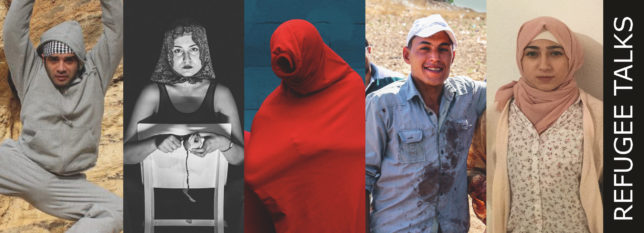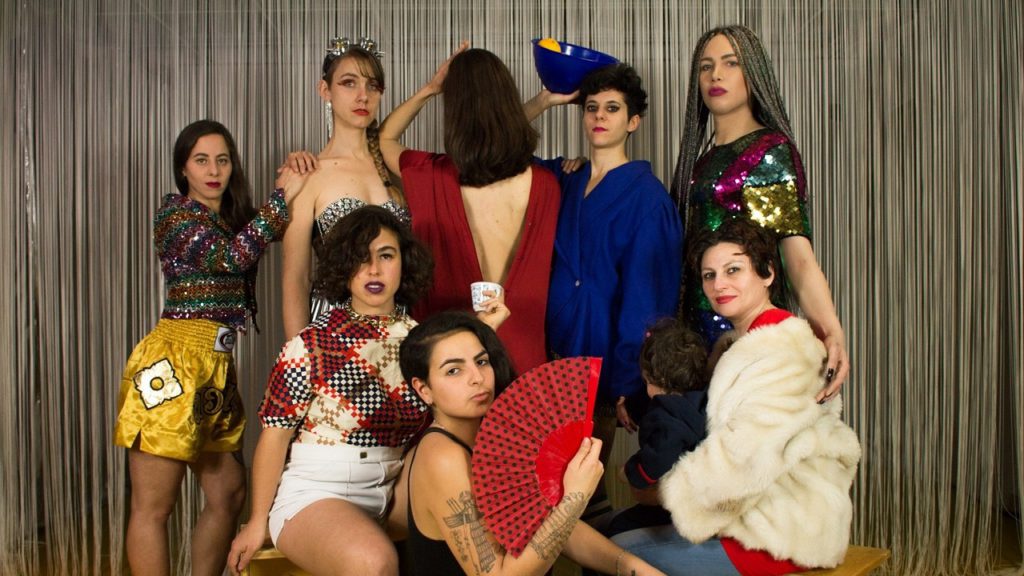Refugee Talks consists of 6 performances which are worked out in a collaboration in between refugees and local theatre makers. The refugees as well as the theatre makers live and work in the Ruhr area and Berlin.
“Refugee Talks” is developed in a cooperation with five drama groups which are all active in the Ruhr area and have been working internationally and transculturally for many years:
Transnationales Ensemble Labsa, Dortmund: “Refugee Talks – What’s up with that? Wash one‘s dirty linen in public – an open performance”
FREIE RADIKALE – hybrides Theater der Gegenwart, Bochum: “War”
ZEITMAULtheater, Bochum: “And now swing”
Compagnie Danse Automatique, Mülheim a.d.R.: “Oblivion”
Theater Arbeit Duisburg: “I’ve got a wound there, or imagine …”

THE PERFORMANCES
… take place from the 23rd February until the 25th March 2018 in Dortmund, Bochum and Duisburg. On overview with all upcoming performances and all locations you can find under UPCOMING.
THE ENTRANCE
… is optional, meaning that everyone pays what she or her is able and wants to pay. There will be no inspections at the entrance, every guest is welcome. Booking is possible directly at the event organizers websites (look at UPCOMING).
GET TOGETHER
… with snacks and drinks after every performance . All guests are welcome!
BACKGROUND
“Refugee Talks” emerged as the fourth part of the theatre serial “NowT_here” – a cooperation between Theater Arbeit Duisburg (TAD), Kultur im Turm e.V. (kitev) and the Syrian artist group Ettijahat – Independent Culture. The third part was the trilingual drama „عندما تبكي فرح | When Farah cries | Wenn Farah weint“ by Mudar al Haggi (Ettijahat) which was released and performed in the end of 2016.
In his performance „Now T_here, Part I“ Mudar Al Haggi asked the question:
„So what about art? I thought that there was no place for art in times of war, that it was obvious. But now in Syria, nothing is axiomatic, and the war will also be very long.“
Belonging to the duration of the war he proved right. “When Farah Cries” also dealed with the role of art in these days. Farah is a sculptor but she does not want to / is not able to work artistically any longer. Only at the end of the play she makes a decision:
„I’ve decided I’m going to sculpt. I need to immortalise this pain. Nothing deserves immortalising these days apart from this pain. Nothing matters in life these days apart from this fragile heart.“
But it is not the pain that claims for expression, it is your own life and your experience, it is what has been, what was lost and the current situation in the exile that wants to be told and shared with the fellow beings – expatriates, migrants and the people who were born here. This is not conveyed on the stage as an “authentic destiny” but contentually and artistically formal the sovereign authorship of the people now living in the Ruhr area and Berlin.
“Now T_here, Part I” (2012/13) deals with “Stay or go?” (and also: returning?) as an open question. Part II (end of 2013) was a work on grief and remembrance. “When Farah Cries” (2016) remembered sensual intensively on the lost times of hope. “Refugee Talks” presumes the exile – Now here – and deals with the present: with all its sedimented past and entailed future.

